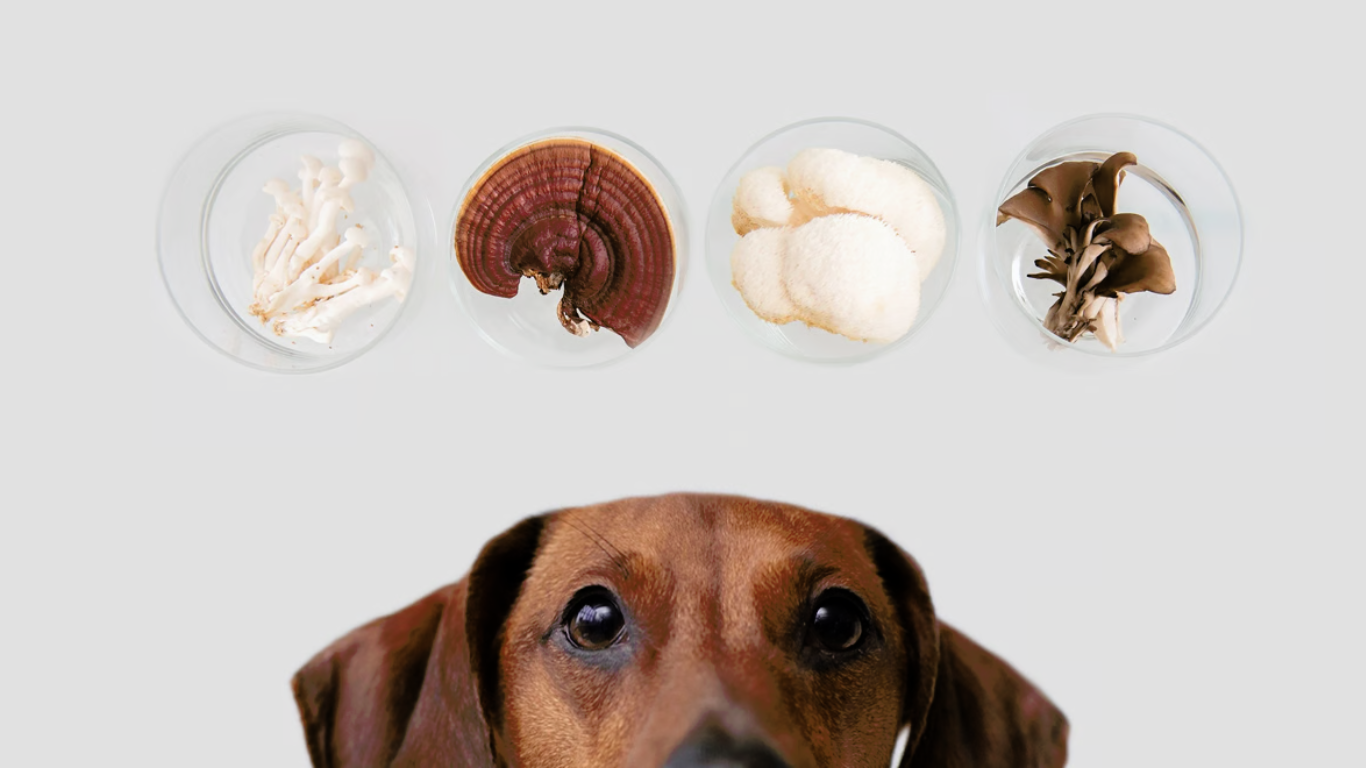Mushroom supplements are gaining popularity as a holistic approach to pet health. They offer several advantages that can help improve dogs’ overall well-being.
These natural products are derived from medicinal mushrooms, which have been used in human healthcare for centuries and are now making their way into canine care. This blog explores how incorporating mushrooms for dogs into their diet can lead to healthier, happier pets.
Nutritional Benefits of Mushrooms
Mushrooms are full of essential nutrients, including vitamins, minerals, and antioxidants, which are fruitful for a dog’s health. Rich in vitamins B and D, selenium, potassium, and antioxidants, mushrooms help support healthy immune function and promote vital energy levels. Unlike some other supplements, the bioactive compounds in mushrooms, such as polysaccharides, glycoproteins, and triterpenes, are particularly beneficial in modulating the immune system and reducing inflammation.
Enhancing Immune Health
One of the primary benefits of these supplements is their ability to enhance immune health. Many types of medicinal mushrooms, including reishi, shiitake, and turkey tail, contain beta-glucans. These are natural polysaccharides that help boost the immune system by triggering macrophages, natural killer cells, and T-lymphocytes. This activation helps the body’s defenses by identifying and eliminating harmful pathogens and cells, thereby supporting a more robust immune response.
Supporting Digestive Health
They also play a significant role in supporting digestive health due to their prebiotic properties, which nourish beneficial gut bacteria. A healthy gut flora is essential for digestion and absorption of nutrients, and it plays a crucial role in the overall immune system of dogs. By improving gut health, these supplements can help reduce common gastrointestinal issues such as diarrhea and constipation.
Anti-Inflammatory Effects
Chronic inflammation can cause numerous health problems in dogs, including arthritis, allergies, and various skin conditions. Mushrooms contain potent anti-inflammatory compounds that can help reduce inflammation throughout the body. For instance, reishi mushrooms are known for their anti-inflammatory effects, which can help decrease pain and improve mobility in dogs with joint issues.
Enhancing Liver Health and Detoxification
The liver is vital for detoxifying the body, and mushrooms can significantly enhance this function. Certain mushrooms, like the milk thistle and cordyceps, have hepatoprotective properties, which help protect and regenerate the liver. This can be particularly beneficial for dogs exposed to toxins or those on medication that can strain liver function.
Supporting Cardiovascular Health
Mushrooms have been shown to support cardiovascular health in several ways. They can help decrease blood pressure, lower cholesterol levels, and improve circulation. This is especially important for older dogs, who are more prone to heart problems. For example, shiitake mushrooms contain compounds that help prevent plaque buildup in arteries, promoting better blood flow and heart health.
Cognitive and Emotional Health
As dogs age, they can experience declines in cognitive function, leading to confusion and anxiety. Lion’s mane mushrooms are renowned for their neuroprotective properties, which can help enhance cognitive function and potentially slow the progression of neural diseases. Additionally, the calming effects of certain mushrooms can help reduce anxiety and stress in dogs, resulting in a more balanced and happy life.
Dosage and Safety
When considering mushroom for dogs, it is crucial to contact a veterinarian to determine the appropriate type and dosage. Most supplements come in powder or capsule form, making them easy to incorporate into a dog’s diet. However, starting with a low dose and slowly increasing it based on the dog’s response is essential to ensure safety and efficacy.
Mushroom supplements offer a holistic way to improve the health and well-being of dogs. As with any supplement, it is important to consult with a veterinary professional to ensure these products are a safe and effective addition to a dog’s health regimen. With the right approach, these supplements can be a valuable part of maintaining a healthy, happy dog.




